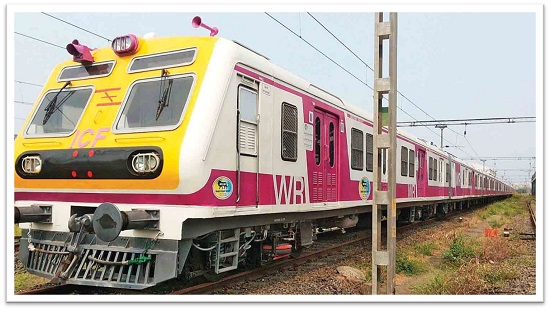
Western Railway Restricts Platform Ticket Sales at Four Major Stations to Prevent Overcrowding During Festive Season
In anticipation of the massive surge in passenger traffic during Diwali and Chhath, the Western Railway (WR) has announced a temporary restriction on the sale of platform tickets at four major stations — Bandra, Vapi, Udhna, and Surat — from October 15 to 31. The decision aims to prevent overcrowding, ensure smooth passenger flow, and enhance safety during one of the busiest travel periods of the year.
The restriction, which will remain in effect for over two weeks, reflects the railway’s proactive approach to crowd management and public safety. With millions of people expected to travel across Maharashtra and Gujarat to reunite with families, the Western Railway’s move underscores a commitment to safety-first governance amid the festive rush.
A Preventive Measure Rooted in Safety
According to officials, the restriction covers the Bandra Terminus in Mumbai and three major Gujarat stations — Vapi, Udhna, and Surat. These hubs witness exceptionally high passenger volumes during Diwali and Chhath, as thousands of migrant workers and families head home.
Western Railway’s Chief Public Relations Officer Vineet Abhishek explained that the decision was made to ensure “smooth passenger movement and safety within station premises during the anticipated festive rush.” By temporarily halting platform ticket sales, authorities aim to prevent unnecessary crowding on platforms, which can obstruct train operations and compromise safety.
This measure follows last year’s incident at Bandra station, where nine passengers sustained injuries in a minor stampede as crowds rushed to board a train during the festive period. While the incident was swiftly contained, it served as a reminder of the challenges in managing large festive crowds in high-density urban stations. The current restriction is therefore a preventive, data-driven step — one designed to avert such risks before they occur.
Exemptions for Special Cases
The Western Railway has clarified that the restriction is not absolute. Platform tickets will still be issued in genuine and necessary cases — such as for individuals assisting senior citizens, women travellers, specially-abled (divyangjan) passengers, or those who are illiterate and require guidance. This inclusive approach ensures that the regulation safeguards safety without compromising accessibility or compassion.
Officials also emphasized that these exceptions will be monitored closely by on-ground staff to ensure proper use and to maintain crowd discipline. The goal, they said, is to “strike a balance between convenience and safety” while keeping railway premises orderly.
Balancing Mobility and Management
The Western Railway’s initiative reflects a broader strategy of crowd management adopted by Indian Railways during high-demand seasons. Rather than waiting for crises to occur, the administration is shifting toward preventive governance — using data, historical travel patterns, and on-ground feedback to forecast congestion and intervene early.
By restricting platform ticket sales, the WR reduces non-traveller footfall, ensuring that platforms remain accessible to actual passengers. This helps streamline boarding, minimizes congestion, and enhances evacuation readiness in case of emergencies.
Additionally, the measure aligns with the Indian Railways’ larger mission to modernize station management through real-time monitoring, crowd analytics, and improved security infrastructure. Several major stations, including Surat and Bandra, already use CCTV-based crowd control and digital passenger information systems to aid coordination between security personnel and station authorities.
A Reminder from Last Year’s Lessons
Last year’s stampede incident at Bandra, though contained, was a wake-up call. As millions of people attempt to travel home during Diwali and Chhath, even minor delays or misinformation can lead to unsafe crowd behaviour. By learning from such events, Western Railway’s leadership has taken a forward-looking, risk-averse stance that prioritizes passenger safety over convenience.
Crowd experts have often pointed out that large-scale travel management in India requires a blend of regulation, communication, and empathy. Restricting platform ticket sales may appear restrictive at first glance, but its intent is to prevent chaos and safeguard lives — a trade-off that reflects responsible public administration.




